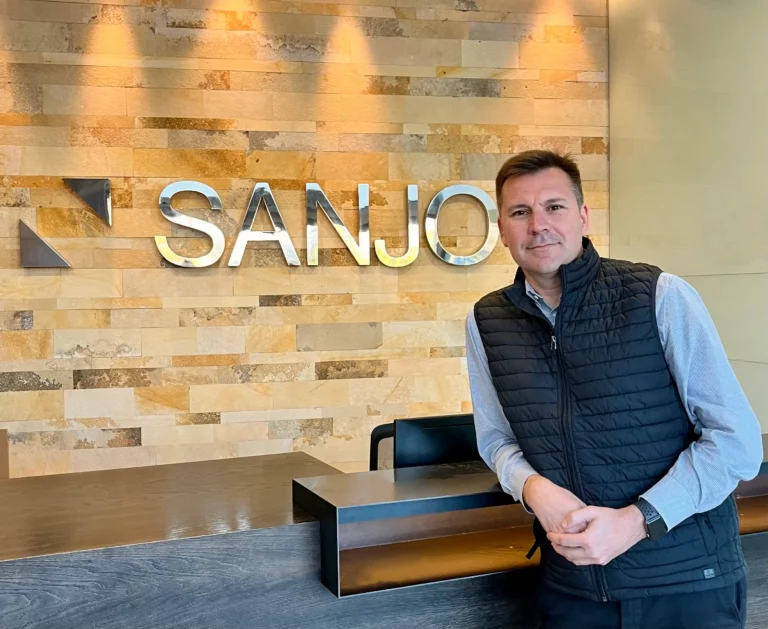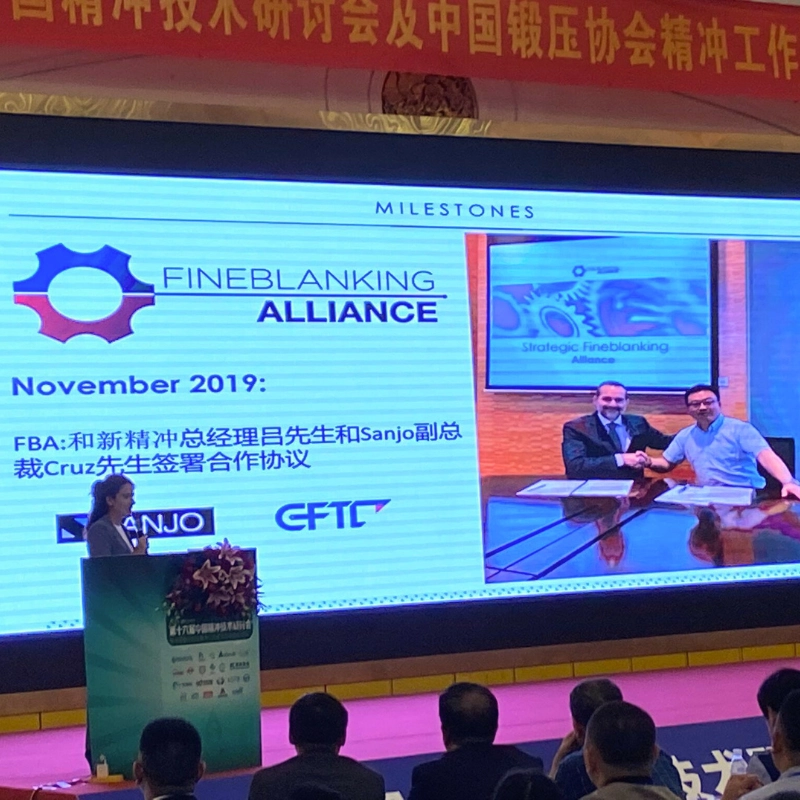This April, David Botines, Corporate General Manager of Sanjo Group has been interviewed by the digital newspaper Industry Talks. In this interesting conversation, Botines shared the company’s sustainability vision and strategy.
-In such a technologized company, innovation is key. How have you adapted your processes, whether for the automotive, energy or power tool industries, to bring new ideas into line with the sustainability requirements that are now being demanded for all sectors?
It is clear to us that innovation is an essential part of a sector as technological as ours. That is why we are constantly adapting our processes to meet the demands of sustainability in all our key industries. Each new idea and technological breakthrough undergoes a rigorous evaluation process to ensure that it not only improves the efficiency and quality of our products, but also meets current environmental standards. This involves everything from optimizing our production methods to reduce waste and resource consumption, to incorporating more sustainable materials and technologies in our end products.
-Sanjo Group has implemented corporate social responsibility among its main commitments. What is your environmental protection policy?
Corporate social responsibility is one of our fundamental pillars, and this is reflected in our environmental protection policy. We are fully committed to continuously monitor our carbon footprint, to take the necessary measures to progressively reduce it to zero emissions by 2030, and to promote this same commitment in our supply chain.
To this end, in 2022 we decided to invest in the installation of solar panels and reduce our dependence on non-renewable sources. In addition, we are working on the purchase of emission-free electricity, backed by the corresponding certificate.
-Many multinationals have taken on the role of sustainability drivers for other companies that are their suppliers so that environmental requirements do not become a bottleneck in the value chain. There are sustainability directors of very important groups who announce that this will be a titanic activity in the coming years. How are you working in this regard?
It is clear that in order for the value chain not to be lost, “teamwork” is needed with all those involved in the final result, and here multinationals have a crucial role to play as drivers of sustainability. At Sanjo Group, we are actively working in collaboration with our suppliers to promote responsible practices. This involves setting clear sustainability standards, providing training and support for their implementation, and fostering a culture of environmental responsibility throughout our supply network. While we understand that this is a considerable challenge, we are involved and committed to doing our part to ensure a sustainable future for all.
-It is well known that some companies have stated that the burden of environmental sustainability has become a burden on their competitiveness. What is your vision from the industrial heart of Sanjo?
“From the industrial heart of Sanjo” as you say, we have the vision that environmental sustainability should not be seen as a drag on competitiveness, but as an opportunity for innovation and growth. We know that it can commonly be seen as something that can be slow and costly, but integrating sustainable practices into our operations can generate significant benefits both economically and environmentally while creating value.
-We at Envera always say that it is crucial to be greener, but no less important to be more human, the “Social” of the ESG criteria. After all, industries work with people and produce goods for people. How do you approach this CSR where the focus is on improving the lives of human beings?
When we talk about sustainability at Sanjo, we mean it in its broadest sense. We understand it as a long-term business project based on honesty, effort and the development of trusting relationships. We recognize that our industrial operations have a direct impact on people, both inside and outside our company. We therefore approach our CSR with a holistic approach that prioritizes the improvement of human lives in all our actions.
-They export to more than 30 countries and are present in the United States, Germany and China. What value and impetus does compliance with ESG standards have in this internationalization strategy that has made a small workshop in Barcelona founded in 1967 into the multinational company it is today?
-We have been in business for almost 60 years and have grown from a small workshop to a multinational with offices in various parts of the world, in key markets, as you point out, in the United States, Germany and China. These years have provided us with the knowledge and perspective to give ESG compliance the importance it deserves in our internationalization strategy. Meeting these standards is not only a matter of corporate responsibility, but also adds value to our brand and helps us to manage and maintain strong business relationships.






